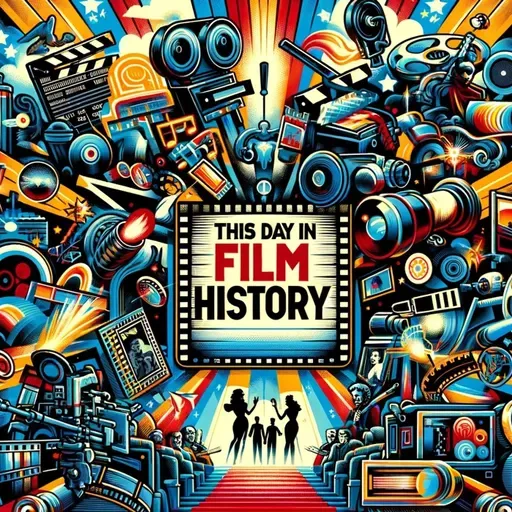
About
On October 15th in film and cinema history, one significant event occurred in 1940 with the premiere of Charlie Chaplin's satirical comedy-drama, "The Great Dictator." The film, which Chaplin wrote, directed, produced, scored, and starred in, was a bold and controversial critique of Adolf Hitler, fascism, antisemitism, and the Nazi Party during a time when the United States was still formally at peace with Germany.
Chaplin played two roles in the film: a Jewish barber persecuted by the Nazis and a ruthless dictator named Adenoid Hynkel, a clear parody of Hitler. The movie showcases Chaplin's signature comedic style while addressing serious political issues. The film features a famous scene in which Hynkel dances with a globe, symbolizing his megalomaniacal desire for world domination.
"The Great Dictator" was Chaplin's first true sound film, although it still included some silent sequences. The decision to make a talkie allowed Chaplin to deliver one of the most powerful and memorable speeches in cinema history. In the film's climax, Chaplin, as the Jewish barber, delivers an impassioned plea for peace, tolerance, and human dignity, directly addressing the audience and breaking the fourth wall.
The speech, which lasted over five minutes, was a heartfelt and emotional call for unity and resistance against the forces of hatred and oppression. It remains one of the most iconic and influential moments in film history, with its message still resonating with audiences today.
Despite the film's sensitive subject matter and the potential for controversy, "The Great Dictator" was a critical and commercial success. It was nominated for five Academy Awards, including Best Picture, Best Original Screenplay, and Best Actor for Chaplin.
However, the film was banned in several countries, including Germany, Italy, and Spain, due to its satirical portrayal of fascist leaders. In hindsight, "The Great Dictator" is often praised for its courage and prescience in addressing the dangers of totalitarianism at a time when many in the world were still appeasing or ignoring the threat posed by Nazi Germany.
The premiere of "The Great Dictator" on October 15, 1940, stands as a testament to the power of cinema to confront social and political issues, provoke thoughtful discussion, and inspire change. It remains a landmark film in the history of cinema and a showcase of Charlie Chaplin's unparalleled talent as a filmmaker and performer.
Some great Deals https://amzn.to/49SJ3Qs
For more check out http://www.quietplease.ai
This content was created in partnership and with the help of Artificial Intelligence AI
Chaplin played two roles in the film: a Jewish barber persecuted by the Nazis and a ruthless dictator named Adenoid Hynkel, a clear parody of Hitler. The movie showcases Chaplin's signature comedic style while addressing serious political issues. The film features a famous scene in which Hynkel dances with a globe, symbolizing his megalomaniacal desire for world domination.
"The Great Dictator" was Chaplin's first true sound film, although it still included some silent sequences. The decision to make a talkie allowed Chaplin to deliver one of the most powerful and memorable speeches in cinema history. In the film's climax, Chaplin, as the Jewish barber, delivers an impassioned plea for peace, tolerance, and human dignity, directly addressing the audience and breaking the fourth wall.
The speech, which lasted over five minutes, was a heartfelt and emotional call for unity and resistance against the forces of hatred and oppression. It remains one of the most iconic and influential moments in film history, with its message still resonating with audiences today.
Despite the film's sensitive subject matter and the potential for controversy, "The Great Dictator" was a critical and commercial success. It was nominated for five Academy Awards, including Best Picture, Best Original Screenplay, and Best Actor for Chaplin.
However, the film was banned in several countries, including Germany, Italy, and Spain, due to its satirical portrayal of fascist leaders. In hindsight, "The Great Dictator" is often praised for its courage and prescience in addressing the dangers of totalitarianism at a time when many in the world were still appeasing or ignoring the threat posed by Nazi Germany.
The premiere of "The Great Dictator" on October 15, 1940, stands as a testament to the power of cinema to confront social and political issues, provoke thoughtful discussion, and inspire change. It remains a landmark film in the history of cinema and a showcase of Charlie Chaplin's unparalleled talent as a filmmaker and performer.
Some great Deals https://amzn.to/49SJ3Qs
For more check out http://www.quietplease.ai
This content was created in partnership and with the help of Artificial Intelligence AI